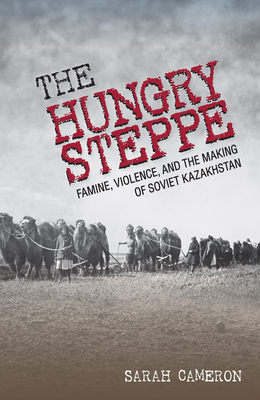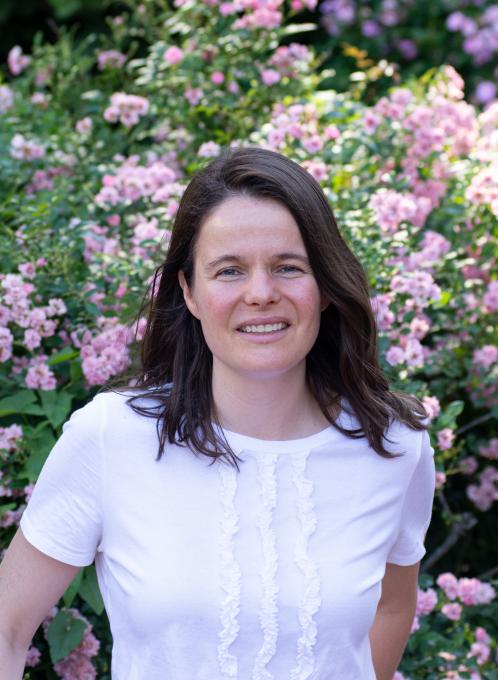

 Cornell University Press
Cornell University Press
The Hungry Steppe: Famine, Violence, and the Making of Soviet Kazakhstan


Key Metrics
- Sarah Cameron
- Cornell University Press
- Hardcover
- 9781501730436
- 9.02 X 5.98 X 0.81 inches
- 1.29 pounds
- History > Russia & the Former Soviet Union
- English
 Secure Transaction
Secure TransactionBook Description
The Hungry Steppe examines one of the most heinous crimes of the Stalinist regime, the Kazakh famine of 1930-33. More than 1.5 million people perished in this famine, a quarter of Kazakhstan's population, and the crisis transformed a territory the size of continental Europe. Yet the story of this famine has remained mostly hidden from view. Drawing upon state and Communist party documents, as well as oral history and memoir accounts in Russian and in Kazakh, Sarah Cameron reveals this brutal story and its devastating consequences for Kazakh society.
Through the most violent of means the Kazakh famine created Soviet Kazakhstan, a stable territory with clearly delineated boundaries that was an integral part of the Soviet economic system; and it forged a new Kazakh national identity. But this state-driven modernization project was uneven. Ultimately, Cameron finds, neither Kazakhstan nor Kazakhs themselves were integrated into the Soviet system in precisely the ways that Moscow had originally hoped. The experience of the famine scarred the republic for the remainder of the Soviet era and shaped its transformation into an independent nation in 1991.
Cameron uses her history of the Kazakh famine to overturn several assumptions about violence, modernization, and nation-making under Stalin, highlighting, in particular, the creation of a new Kazakh national identity, and how environmental factors shaped Soviet development. Ultimately, The Hungry Steppe depicts the Soviet regime and its disastrous policies in a new and unusual light.
Author Bio
Professor Sarah Cameron is a historian of Russia and the Soviet Union. Her research interests include genocide and crimes against humanity, environmental history, and the societies and cultures of Central Asia.
Her first book, The Hungry Steppe: Famine, Violence, and the Making of Soviet Kazakhstan (Cornell University Press, 2018), examines one of the most heinous crimes of the Stalinist regime, the Kazakh famine of 1930-33. As part of a radical social engineering scheme, Josef Stalin sought to settle the Kazakh nomads and force them into collective farms. More than 1.5 million people perished as a result, a quarter of Soviet Kazakhstan’s population, and the crisis transformed a territory the size of western Europe.
Drawing upon a wide range of sources in Russian and in Kazakh, the book brings this largely unknown story to light, revealing its devastating consequences for Kazakh society. It finds that through the most violent means the Kazakh famine created Soviet Kazakhstan and forged a new Kazakh national identity. But the nature of this transformation was uneven. Neither Kazakhstan nor Kazakhs themselves became integrated into the Soviet system in precisely the ways that Moscow had originally hoped. The experience of the famine scarred the republic for the remainder of the Soviet era and shaped its transformation into an independent nation in 1991.
The book uses the history of the Kazakh famine to overturn several assumptions about violence, modernization, and nation-making under Stalin, highlighting, in particular, the creation of a new Kazakh national identity, and how environmental factors shaped Soviet development. Ultimately, The Hungry Steppe depicts the Soviet regime and its disastrous policies in a new and unusual light.
The book won four book awards (the Reginald Zelnik Book Prize, the W. Bruce Lincoln Book Prize, the Joseph Rothschild Prize in Nationalism and Ethnic Studies and the Southern Conference on Slavic Studies Book Prize) and two honorable mentions (the Wayne S. Vucinich Book Prize and the Heldt Prize). It has also provoked intense discussion in Kazakhstan, where the famine remains a partially forbidden topic in part due to Kazakhstan's close relationship with Russia. Russian and Kazakh translations of the book have been released.
Dr. Cameron has held fellowships at the Kluge Center at the Library of Congress, the Rachel Carson Center for Environment and Society in Munich, Germany, and the Woodrow Wilson International Center for Scholars. Her research has been supported by the Harry Frank Guggenheim Foundation, Mellon/The American Council for Learned Societies, Fulbright and others. She received her PhD from Yale University.
At present, Prof. Cameron is at work on a new book-length project examining the transformation of the Aral Sea in Central Asia over the course of the twentieth century.
Source: University of Maryland Department of History
Videos
No Videos
Community reviews
Write a ReviewNo Community reviews